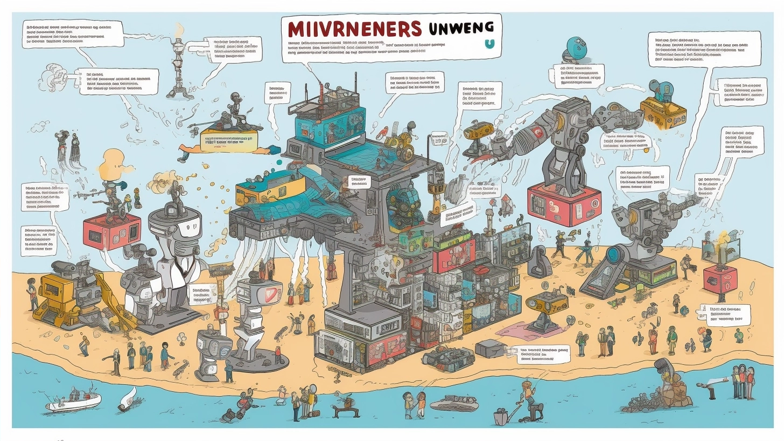
Machine learning is a branch of artificial intelligence that allows machines to learn from data, without being explicitly programmed. It essentially involves training algorithms on large datasets, allowing machines to identify patterns and make accurate predictions based on that data.
The potential applications of machine learning are vast, from consumer-facing products like personal assistants to more complex applications in healthcare and finance. In this article, we'll explore some of the most exciting applications of machine learning and how businesses and individuals can leverage this technology to their advantage.
Self-Driving Cars
Self-driving cars have been one of the most visible applications of machine learning in recent years. Companies like Tesla, Uber, and Google have invested heavily in this technology, with the aim of making driving safer and more efficient. Self-driving cars use a variety of sensors to collect data about their surroundings, including cameras, radar, and lidar (a laser-based imaging system).
The machine learning algorithms that power these systems are trained on vast amounts of data, allowing them to detect and classify objects in their environment, predict their behavior, and make decisions based on that information. For example, a self-driving car might use machine learning to distinguish between pedestrians and other vehicles, predict where they are likely to go, and adjust its speed and trajectory accordingly.
The potential benefits of self-driving cars are enormous. They could reduce traffic accidents, save time and energy by reducing congestion, and provide greater mobility for people who are unable to drive themselves.
Personalized Medicine
Another exciting application of machine learning is in the field of personalized medicine. Doctors and researchers are increasingly using machine learning to analyze and interpret vast amounts of genomic and clinical data, with the aim of developing more personalized treatments for patients.
One of the key challenges in medicine is identifying the most effective treatments for different patients. Machine learning can help by analyzing large datasets of genomic and clinical data to identify patterns and correlations that might be missed by human researchers. For example, machine learning algorithms can analyze genomic data to identify mutations that might be associated with specific diseases, or analyze clinical data to identify patients who are likely to respond well to a particular treatment.
The potential benefits of personalized medicine are enormous. By tailoring treatments to the specific genetic and clinical characteristics of individual patients, doctors can provide more effective treatments and improve patient outcomes.
Fraud Detection
Machine learning is also being used to improve fraud detection in a variety of industries, from finance to insurance. Fraud detection is a complex problem that requires analyzing large datasets to identify patterns and anomalies that might indicate fraudulent behavior.
Machine learning algorithms can be trained on historical data to identify patterns and correlations that are associated with fraudulent behavior. For example, a finance company might use machine learning to identify patterns of credit card fraud based on a customer's location, purchase history, and spending patterns.
The potential benefits of improved fraud detection are clear. By detecting fraud more effectively, companies can reduce losses and protect their customers from financial harm.
Recommendation Engines
Personalized recommendations are an increasingly important part of many consumer-facing products, from Amazon to Netflix. These recommendations are powered by machine learning algorithms that analyze user data to identify patterns and make recommendations based on that data.
For example, Netflix might use machine learning to recommend movies and TV shows based on a user's viewing history, ratings, and social interactions. Similarly, Amazon might use machine learning to recommend products based on a user's purchase history and search queries.
The potential benefits of personalized recommendations are clear. By providing more relevant and personalized recommendations, companies can improve customer satisfaction and increase sales.
Closing Remarks
Machine learning is an exciting field that has the potential to revolutionize a wide range of industries. From self-driving cars to personalized medicine, machine learning has the potential to improve efficiency, reduce costs, and improve outcomes for individuals and businesses alike.
While the potential benefits of machine learning are clear, it's important to recognize that there are also potential risks and challenges associated with this technology. For example, concerns around privacy and data security remain a major consideration for companies that use machine learning to store and analyze sensitive data.
Despite these challenges, there's no doubt that the future of machine learning is bright. As the technology continues to advance, we can expect to see even more innovative applications of this technology that have the potential to transform the way we live and work.
Comments
Post a Comment